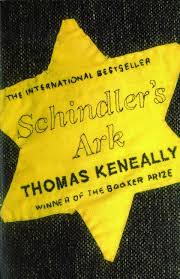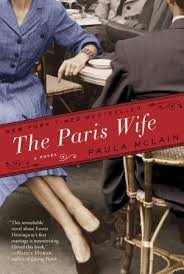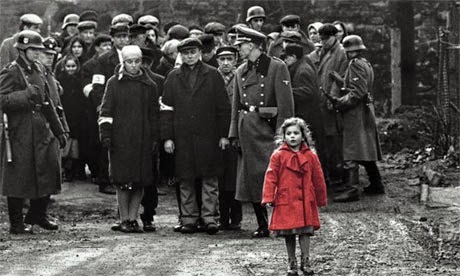The ‘non-fict ion novel’ was a phrase originally used by Truman Capote in 1966 to describe his book ‘In Cold Blood – A True Account of a Multiple Murder and its Consequences.’ Since then, true crimes have been fictionalised with much success, books such as ‘The Suspicions of Mr Whicher’ leading to a slew of similar copycat books. Historical fiction often unwittingly falls into the category of the ‘non-fiction novel’. It can be difficult for the reader to decide – are the events in the book true? How much is fiction and how much is fact? ‘Schindler’s Ark’ for example, was published as non-fiction in the US but won the Booker prize for fiction here in the UK.
ion novel’ was a phrase originally used by Truman Capote in 1966 to describe his book ‘In Cold Blood – A True Account of a Multiple Murder and its Consequences.’ Since then, true crimes have been fictionalised with much success, books such as ‘The Suspicions of Mr Whicher’ leading to a slew of similar copycat books. Historical fiction often unwittingly falls into the category of the ‘non-fiction novel’. It can be difficult for the reader to decide – are the events in the book true? How much is fiction and how much is fact? ‘Schindler’s Ark’ for example, was published as non-fiction in the US but won the Booker prize for fiction here in the UK.
I once asked Peter Ackroyd, the English novelist and biographer, what the difference was between his novels and his biographies. He said to me, in his deadpan way, “In biographies you can make things up. In novels you are obliged to tell the truth.”
Jay Parini The Atlantic Magazine
Readers of historical fiction have become more and more concerned with accuracy, and this is partly because of the pressures of the publishing world for the writer to find a ‘marquee name’, i.e. a popular historical figure that the reader might already be familiar with.
Nancy Horan’s 2007 novel Loving Frank, about the private life of the architect Frank Lloyd Wright, followed by Paula McLain’s 2011 hit The Paris Wife, told from the point of view of Ernest Hemingway’s first wife, has made publishers eager for stories that draw heavily on biography but wriggle out of its ethical constraints.
 In particular, recently writers have been quick to exploit the hidden lives of famous men’s wives – everyone wants to know what went on in their private lives, and who better to tell you than the wives? And of course the novelist can invent the domestic milieu. This has meant that books about famous historical figures dominate traditionally-published historical fiction titles. With this comes the ‘faction’ problem – or opportunity – depending on which way you look at it. The more enormous the figure in history, the more ‘accurate’ the biographical portrayal has to be to satisfy readers, who may already have preconceptions about the character. Many books I would label as historical novels are now labelled as ‘historical biographical fiction’, and the assumption is that these books will be ‘accurate’, judged by the standards of non-fiction.
In particular, recently writers have been quick to exploit the hidden lives of famous men’s wives – everyone wants to know what went on in their private lives, and who better to tell you than the wives? And of course the novelist can invent the domestic milieu. This has meant that books about famous historical figures dominate traditionally-published historical fiction titles. With this comes the ‘faction’ problem – or opportunity – depending on which way you look at it. The more enormous the figure in history, the more ‘accurate’ the biographical portrayal has to be to satisfy readers, who may already have preconceptions about the character. Many books I would label as historical novels are now labelled as ‘historical biographical fiction’, and the assumption is that these books will be ‘accurate’, judged by the standards of non-fiction.
[in the notes, writers]will explain where they drew the line between what was documented and what was fiction, who was “real” and who was not. But this is not how novel-reading works. If a novel does its job and draws us into the world it creates so we can’t see the edges, we won’t keep checking with the notes in the back to see what we can trust. We surrender to the characters.
Quotations from Joanna Scutts The Slate Book Review
But insistence as novelists that we are historically accurate ignores the slippery fact that all history is a construct. I remember researching George Fox’s Diaries for ‘The Lady’s Slipper’, so I could be accurate, only to find he’d cleaned up his own diaries even before he died, in his own lifetime, thus subtly subverting his own ‘truth’. But then perhaps one man’s view can never be the absolute truth.
History is, of course, a made thing. It does not exist by itself in anything like a recognizable form. Indeed, we might all forget where we have been, if we didn’t have somebody to assemble and arrange the little blocks called facts from which history is constructed, artfully or less so. As Foner put it in his keynote address, “Works of history are first and foremost acts of the imagination.”
Jay Parini The Atlantic Magazine
But the virtue of the popularity of history told through a novelist’s eyes is increased identification with the character in the period. Of course, this is a double-edged sword – Joanna Scutts warns us against thinking people in the past were just like us.
But the idea that it is easy to imagine ourselves into a “relatable” and recognizable past, where people wore different clothes but thought basically as we do about love, happiness, and independence, is a cheap trick that flatters us at the expense of history and literature alike. This isn’t just fiction, it’s fan fiction—a fantasy built over the historical trace of a person we admire and wish we could know.
Quotations from Joanna Scutts The Slate Book Review
Nevertheless, the fact that readers are hungry for this sort of fiction about real people and events provides us with a great opportunity, to bring the past to life, to populate it with credible characters, and as Peter Ackroyd says to ‘tell the truth’ about the unchanging human condition.
You might also like:
Historical Fiction – Seven Virtues
Virtue 1 – Bravery
Historical Fiction : Seven Deadly Sins
Deadly Sin 1 – Melodrama
Deadly Sin 2 – Purple Prose
Deadly Sin 3 – Stuck in the Past
Deadly Sin 4 – Lost or Glossary?
Deadly Sin 5 – The Length of Time
Deadly Sin 6 – The Aura of an Era
Deadly Sin 7 – Mistaking if for a Genre


Hi Deborah
As a writer of historical biographical fiction, I was really interested in this post. It especially had me thinking how we, the modern writer, think ourselves into the place of our real-life characters of the past, and bring them to life with thoughts and behaviours we believe they had, but which, living a very different life, they may not have had at all. We superimpose our experiences onto them, even knowing how different their lives were.
My book is about a seventeenth century midwife, who frequented both prison and palace. How can I really know how different her thoughts were about her experiences to ones I would have had if I had been in her position?
However, saying that, a reader would want a person’s thoughts and actions to be recognisable, and would want to be able to empathise with them. So, perhaps, we have to ‘modernise’ history after all. Besides, what better way of bringing history to life than to fictionalise it? After all, isn’t that the way that stories of ancient history were passed on to make them more memorable? 🙂
Yes, I think we can’t help modernising history, as you say. When I look at biographies and novels from earlier centuries, they all speak of their time in subtle ways – such as in their attitude to women, or their quiet assumption that people of different cultures must be savages. Sometimes, it is in the way some things are ommitted, such as the fact that some classes had no access to education and no legal vote. History seems to be an ever-moving tide!